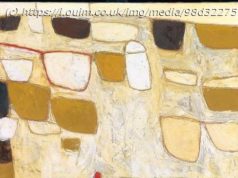![]() By Clarence Page
By Clarence Page
Sunday, Jan. 29, 2017 | 2 a.m.
White House senior adviser Kellyanne Conway said more than a little bit when she described President Donald Trump’s press secretary as offering “alternative facts.”
That may well be the most startling description of our new president’s promotional style that I have heard since his best-selling “The Art of the Deal” said his most useful promotional tool is “truthful hyperbole.”
Sure, it was probably a slip, yet also too on-the-nose in its accuracy to warrant a correction.
Conway, a counselor to the president after managing his election campaign, was in a heated exchange with NBC’s Chuck Todd on “Meet the Press” on Sunday, defending an inaccurate claim by White House Press Secretary Sean Spicer.
The issue started the day before when Spicer yelled at reporters for allegedly “sowing division” and “deliberately false reporting” of Trump’s inauguration crowd — which he called “the largest audience to witness an inauguration — period!”
Unfortunately for Spicer, there was no evidence to support his claim. Trump’s inauguration crowd was much smaller than President Barack Obama’s in 2009, and he drew fewer television viewers in the United States (30.6 million) than Obama did in 2009 (37.8 million) and Ronald Reagan did in 1981 (41.8 million), according to Nielsen figures reported by The New York Times.
Figures for online viewership were not available, although Spicer expressed confidence that the final count would reveal that more eyeballs witnessed this inauguration than any other.
The fact-checking later grew even more interesting on “Meet the Press” when Todd challenged Conway about Spicer’s promoting “falsehoods.” Conway disagreed:
“You’re saying it’s a falsehood, and … Sean Spicer, our press secretary, gave alternative facts to that,” Conway said.
“Alternative facts?” Call me old fashioned, but is that a euphemism for lying? I’m just asking.
Or maybe Conway, who has described herself as “a fully recovered lawyer,” is simply thinking like a lawyer and spin doctor. Courtrooms and political campaigns are arenas for dueling narratives. Each side has its set of facts and the other side has its, well, alternative facts.
But why is Team Trump so determined to argue on behalf of their president over something seemingly so trivial as his crowd count and television ratings? Because they represent Donald Trump, the unlikely candidate whose aspirations to greatness have left him disappointed that more Americans don’t think he’s all that great.
So he turns for reassurance to favorable numbers — such as crowd size, TV ratings and poll numbers, especially when they show him “winning.”
But his desperation is showing. His efforts to minimize the significance of the Women’s March and Obama’s inaugurations only served instead to glorify them with more attention — well deserved, in my view.
Even on Monday, The New York Times reported that the new president used part of his first official meeting with congressional leaders to rehash his old and false claim that millions of unauthorized immigrants had robbed him of a popular vote majority. He also reportedly talked about the size of the crowd for his inaugural address.
Donald, let it go.
But even after his swearing-in, his inner salesman will not be contained. It is still hard at work, giving us a hard sell to prop up his legitimacy, perhaps in his own mind as much as anyone else’s — even if he has to inflate a few numbers here and there.
“The final key to the way I promote is bravado,” he says in “The Art of the Deal,” co-authored by Tony Schwartz, who says he made up the phrase “truthful hyperbole” and Trump approved it. “I play to people’s fantasies. People may not always think big themselves, but they can still get very excited by those who do. That’s why a little hyperbole never hurts. People want to believe that something is the biggest and the greatest and the most spectacular. I call it truthful hyperbole. It’s an innocent form of exaggeration — and a very effective form of promotion.”
Welcome to the zone of alternative facts, where your fantasies will be pandered to.
Trump’s bravado challenges our traditional notions of the presidency. George Washington never told a lie, according to legend. But would he tell an alternative fact?
Or would alt-facts make “Honest Abe” Lincoln less honest? In today’s politically cynical times, maybe not so much. But I wouldn’t call that progress.
Clarence Page is a columnist for the Chicago Tribune.






